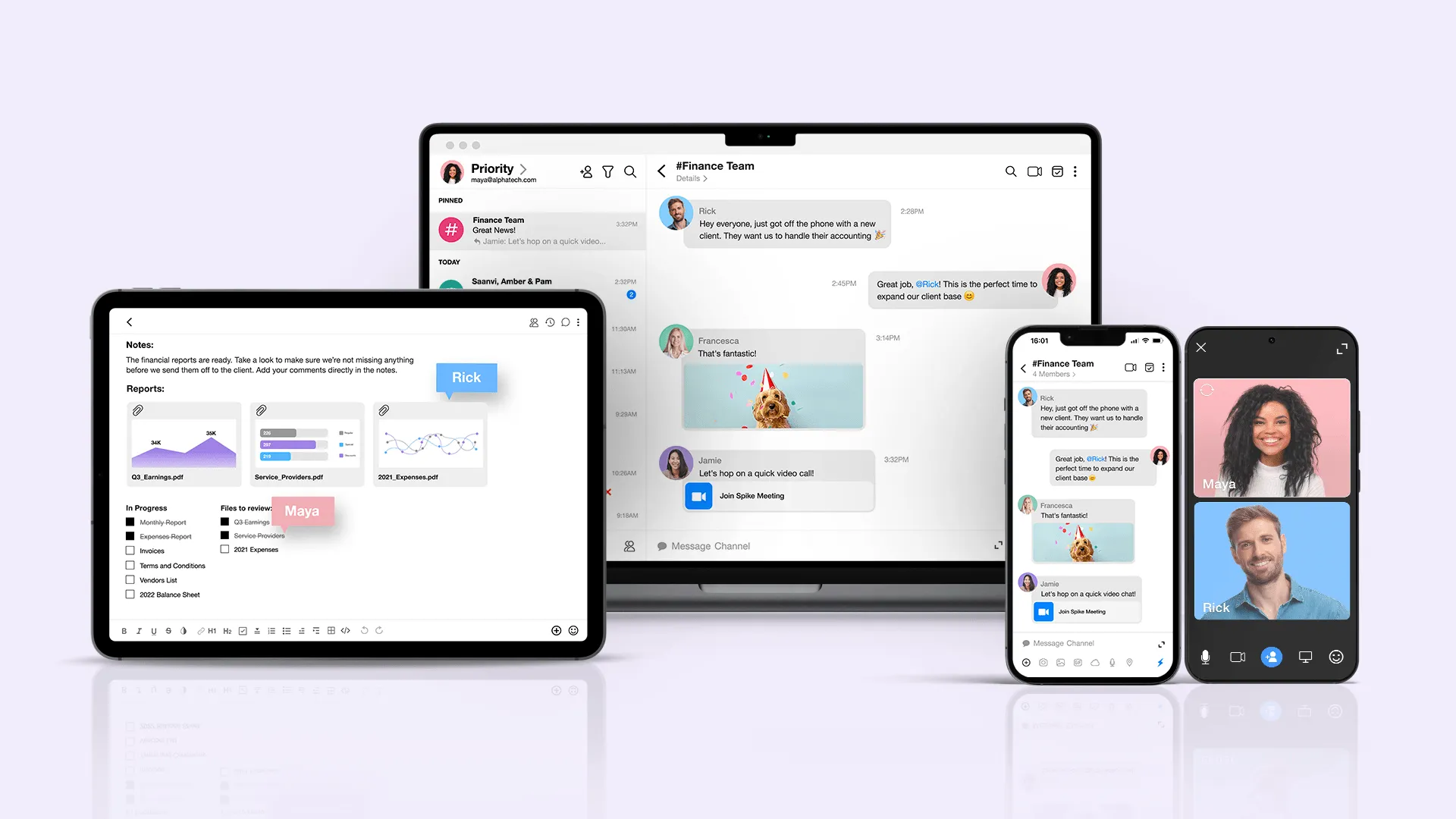Team Collaboration Guide: How to Build Integrated Teams in 2025

Modern teams operate against a new backdrop: hybrid work, AI-driven workflows, global time zones, and rapid technological change. Trust, communication, and shared goals remain essential, but bringing them to life requires innovative approaches.
Below, we’ll explore how to strengthen cohesion, improve accountability, and stay future-ready by combining classic organizational psychology with practical strategies for remote, hybrid, and AI-enhanced teams.
Why Team Collaboration Feels More Challenging
Collaboration in 2025 isn’t simply a matter of logging into Zoom or juggling Slack messages. Teams must navigate new complexities to remain cohesive. Here are four key challenges reshaping how we work together:
-
Time Zones & Hybrid Complexity
Your core developer might be in Auckland, your designer in Berlin, and your marketing lead in São Paulo. Time-zone differences overshadow the benefits of old-school co-location: hallway chats and spontaneous lunches don’t happen naturally.
Hybrid or remote policies can boost flexibility and invite confusion around shared availability, tool adoption, and accountability.
-
AI Tools: Productivity & Anxiety
AI tools automate repetitive tasks, freeing up energy for higher-level thinking. Yet they also introduce anxiety: people may fear replacement or resent continuous “monitoring” solutions.
Meanwhile, endless pings, chats, and system-generated notifications can leave teams drowning in unprioritized data.
-
Trust & Transparency in Virtual Spaces
With minimal face-to-face time, it’s easy for people to worry about how much (or little) others are contributing. Leaders sometimes respond by installing invasive productivity trackers.
These measures often backfire, raising stress levels, fostering suspicion, and reducing morale.
-
Old Theories, New Context
Familiar frameworks like Tuckman’s “forming, storming, norming, performing” remain robust, but “forming” in 2025 might involve asynchronous introductions rather than team-building offsites. “Storming” can easily fester in private DMs if left unchecked.
Likewise, theories like Social Identity Theory remind us that teams thrive when individuals bond over a shared sense of “us,” yet forging that unity remotely demands deliberate rituals and consistent reinforcement.
5 Practical Strategies to Build Team Collaboration
Below are five high-impact tactics rooted in organizational psychology that can help you build a cohesive, high-performing team despite geographic distance, AI adoption hurdles, and evolving work structures.
1. Design for Asynchronous Trust
Trust is fragile when people rarely collaborate in real-time. Emphasizing asynchronous rituals ensures that everyone feels informed and valued without micromanagement.
- Structured updates: Have each team member record a weekly 3-5 minute Loom or Zoom video summarizing wins, hurdles, and upcoming tasks. These updates free everyone from time-zone dependency and provide context without pressuring colleagues to attend late-night calls.
- Document everything: Log significant decisions in a shared workspace (Notion, Google Docs) with short bullet points detailing the “why” behind each choice. Transparency builds trust and keeps knowledge accessible for new or part-time contributors.
- Self-managed milestones: Replace constant manager check-ins with weekly “show-and-tell” demos, during which individuals briefly share progress or lessons learned. This fosters both accountability and a sense of community pride.
When everyone sees and hears from each other, even asynchronously, team members start to identify with the collective. They develop a sense of “us” rather than operating in isolated silos.
2. Create a Safe Space for Honest Feedback
Psychological safety fuels innovation and openness. Without it, minor misunderstandings can escalate into team dysfunction, especially when body language and other in-person cues are absent.
- Regular ‘air-it-out’ sessions: Besides the annual survey, host monthly open forums (20-30 minutes) to discuss scheduling, workload, or AI tool concerns. To encourage candor, set ground rules about respect and confidentiality.
- Celebrate micro-failures: If someone accidentally misallocates a task or misses a deadline, treat it as a shared lesson. This will normalize risk-taking and experimentation.
- Inclusive tech policies: Clarify how AI-driven analytics or project trackers work so employees don’t fear being spied on. Transparency and clear data boundaries build trust.
Teams with higher cohesion share mutual respect and are willing to voice dissenting views. Fostering this open climate ensures that concerns surface early, preventing full-blown conflicts later.
3. Break Down Silos with Cross-Team Collaboration
Geographically or functionally separate teams risk siloing knowledge. Intentional cross-team projects and transparency help disperse ideas and unify culture.
- Pop-up project teams: These assign people from different functional areas, such as sales, design, or engineering, to a short-term initiative. This encourages knowledge sharing and empathy for each other’s challenges.
- AI-powered knowledge repositories: When people search for information, use Notion or Confluence to auto-suggest related files, Slack messages, or meeting notes. This prevents “hoarding” and builds collective intelligence.
- Shared wins: Publicly recognize contributions from multiple departments when a milestone is reached.
As individuals collaborate beyond their usual circles, they develop a broader team identity. People see themselves as part of the organization, reducing the “us vs. them” mentality that can plague large or distributed workplaces.
4. Communicate with Purpose
More messages don’t necessarily mean better communication. You promote clarity over chaos by creating guardrails around when, how, and why people connect.
- Tiered urgency system: Mark messages as “FYI,” “Soon,” or “Urgent” so colleagues know how fast to reply. This reduces the constant pressure to be “always on.”
- Time-zone handoffs: To prevent confusion and late-night pings, encourage a quick “handoff note” at the end of the workday to the next team or region.
- Virtual socializing: Consider Slack channels or Zoom coffee breaks dedicated to off-topic, casual chat. Personal connections often happen organically in shared downtime.
When a team aligns on communication standards, friction is reduced. Explicit norms also lead to psychological comfort. People know what to expect and aren’t perpetually worried about “missing something.”
According to Oriel Partners, a leading PA and EA recruitment agency, effective collaboration isn’t just about tools — it’s about structure. One of the most common reasons collaboration efforts fail is a lack of clarity around coordination roles. When teams have dedicated support in place to manage communications, schedules, and workflow dependencies, they’re free to focus on strategic execution rather than getting bogged down by misalignment.
5. Motivate Teams with Targeted Tech Use
AI and collaboration tools can magnify productivity or become a hindrance if they are mismatched or adopted chaotically. Therefore, choose, refine, and retire tech solutions with a people-first mindset.
- Gamify progress: Offer mini-challenges or badges for knowledge sharing, cross-team problem-solving, or hosting peer-learning sessions. This approach can nudge people to explore tools (and each other’s expertise) without top-down mandates.
- Personalized AI dashboards: These allow each person or team to tailor how they receive AI-generated insights. Some prefer Slack notifications, while others might prefer email summaries.
- Regular recalibration: Conduct quarterly “tool audits” to see if current apps enhance or impede productivity. If a tool no longer serves its purpose or duplicates another, it’s time to reconsider.
You reinforce autonomy and motivation by involving employees in AI and collaborative tools (providing choice and voice). People feel more ownership of results when not forced into rigid systems.
Bringing It All Together
By combining asynchronous rituals, safe feedback channels, cross-team projects, purpose-driven communication, and thoughtful technology adoption, your team can overcome the typical pitfalls of today’s distributed work environment. Revisit these tactics regularly because team dynamics (and tools) will keep evolving.
- Transparent routines: Weekly video updates or group stand-ups reduce micromanagement and keep tasks visible.
- Multiple feedback channels: Anonymous forms, Slack threads, and live sessions encourage candor and ensure tension doesn’t smolder beneath the surface.
- People over platforms: Technology should enable human connection, not replace it.
- Iterate constantly: Check that your communication, collaboration, and AI tools still fit your needs. Don’t lock into a single approach.
- Celebrate collective wins: Recognize every contributor, especially when technology speeds up otherwise tedious tasks, so no one feels overshadowed by AI or left out of the spotlight. Incorporating regular team-building activities can strengthen camaraderie and ensure that every contributor feels valued and included, especially in tech-driven workplaces.
How Spike Transforms Team Collaboration

Spike tackles many of the above-mentioned issues by unifying email, chat, and collaborative documents into one intuitive workspace. This eliminates the unnecessary friction of toggling between platforms, making communication more efficient and natural.
Key Features:
- Conversational Email: This makes email feel like a real-time chat, minimizing clutter and delays.
- Shared Docs: Eliminates the need for multiple apps so teams can stay focused.
- Video Meetings: Straightforward scheduling and on-the-fly audio messages reduce the burden of countless calls.
- Channels & Groups: Keeps discussions organized across teams or projects, ensuring important updates don’t get buried in noise.
Looking Ahead
Team collaboration will continue to evolve: AI will further integrate into daily work, global norms around digital etiquette will shift, and employees will refine how they juggle synchronous vs. asynchronous tasks. Through it all, trust, cohesion, and accountability remain the bedrock of genuinely effective teams.
Embrace tech, but prioritize people. Update processes but anchor them in core psychological principles like open communication, shared identity, and self-determination. By uniting these insights, you’ll ensure that your team thrives well into the future, no matter where or how they work.




